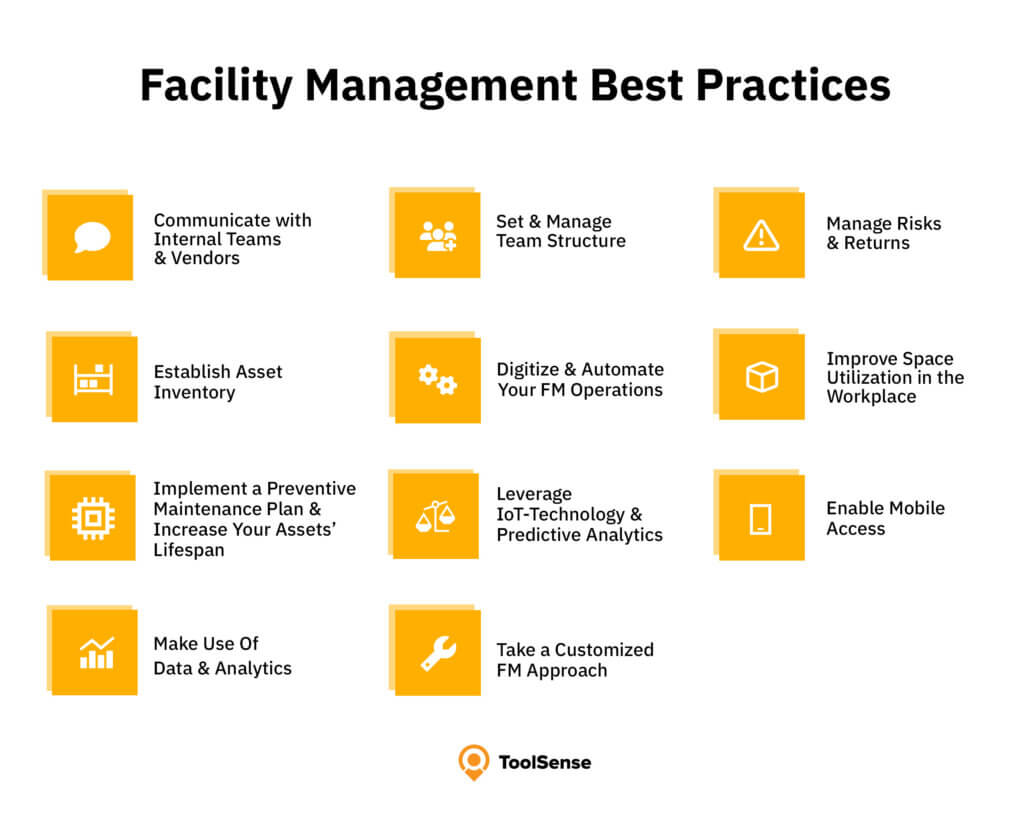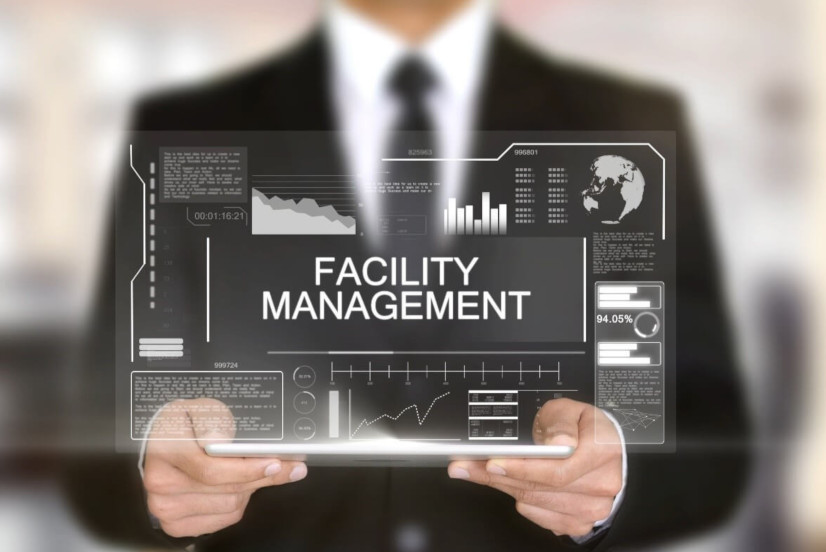Facility Management-- Crucial Services for Efficient Operations
Facility Management-- Crucial Services for Efficient Operations
Blog Article
Key Fads Shaping the Future of Facility Monitoring in 2024
As we look in advance to 2024, the landscape of center administration is poised for significant change, driven by numerous vital trends. The combination of wise structure innovations and a shift towards data-driven decision-making pledge to boost functional performance while prioritizing sustainability in practice.
Smart Building Technologies

Smart building technologies encompass a wide selection of systems, including intelligent illumination, HVAC controls, and security systems. By incorporating these systems, center supervisors can keep an eye on and adjust specifications in real-time, causing substantial reductions in energy waste and functional expenses. As an example, clever sensing units can find tenancy degrees and readjust lights and temperature level accordingly, ensuring that power is just made use of when essential.
In addition, these innovations assist in improved data collection, permitting organizations to track use patterns and determine chances for additional renovations. The implementation of smart building modern technologies not just adds to sustainability objectives however also creates much healthier work settings that can improve employee efficiency and fulfillment.
As we move into 2024, the adoption of smart structure modern technologies will likely speed up, showing a broader change in the direction of more intelligent, receptive, and lasting facility administration techniques.
Data-Driven Choice Making
Increasingly, organizations are leveraging data-driven choice making to improve facility management techniques. By utilizing information analytics, facility managers can obtain workable understandings that considerably enhance functional performance and source allocation. The assimilation of sophisticated modern technologies, such as IoT sensing units and real-time surveillance systems, enables the collection of huge amounts of information on building efficiency, occupancy rates, and power consumption.
This wide range of info allows facility supervisors to determine trends, anticipate upkeep requirements, and proactively address problems before they intensify. As an example, predictive analytics can forecast devices failures, decreasing downtime and repair service expenses. In addition, information visualization devices promote far better interaction amongst stakeholders, making sure that notified decisions are made collaboratively.
In addition, data-driven approaches improve critical planning by enabling facility supervisors to examine the efficiency of current practices and make educated selections regarding investments in innovation or framework. As organizations significantly prioritize operational quality, data-driven decision making is poised to come to be a cornerstone of successful facility monitoring approaches in 2024 and past. Inevitably, the ability to utilize information effectively will empower organizations to create extra effective, productive, and resilient facilities.
Sustainability and Eco-friendly Practices
The emphasis on data-driven decision making normally straightens with the growing focus on sustainability and environment-friendly practices within center monitoring. As companies increasingly prioritize ecological duty, facility managers are leveraging analytics to maximize source use, lower waste, and minimize carbon impacts. This tactical strategy makes it possible for the assimilation of energy-efficient systems, such as LED lights, clever cooling and heating controls, and renewable resource sources right into facility operations.
Furthermore, the implementation useful source of lasting methods extends beyond power consumption. Facility supervisors are embracing environment-friendly materials and promoting reusing efforts to develop a round economy within their centers. This not just enhances the environmental account of the company but also cultivates a culture of sustainability among workers.
Conformity with ecological regulations is one more essential aspect driving the adoption of environment-friendly methods. By using information analytics, center managers can keep track of conformity metrics and determine locations for renovation, guaranteeing adherence to global and local sustainability requirements.
Hybrid Job Versions
A substantial change towards hybrid work models is reshaping the landscape of facility administration in 2024. This standard integrates remote and in-office job, requiring a reevaluation of room application, source allotment, and worker engagement approaches. Organizations are significantly acknowledging the importance of adaptable workspaces that provide to varied requirements and choices.
Center supervisors need to adjust by carrying out versatile office layouts that sustain collective efforts while supplying areas for focused job. This includes the integration of modern technology to help with smooth communication and partnership amongst in-office and remote employees. Smart structure solutions, furnished with analytics and sensors, permit real-time surveillance of area use, making it possible for organizations to enhance their settings efficiently.
Moreover, hybrid job models stress the need for effective center management that focuses on worker experience. navigate to this website This encompasses not only technology and room layout yet also the advancement of policies that advertise a balanced work-life dynamic. As firms navigate this shift, the duty of center administration comes to be crucial in creating a nimble work environment that fosters performance and drives business success. Fundamentally, the hybrid work model is reinventing facility administration, motivating an aggressive strategy to fulfill the developing demands of the workforce.
Improved Occupant Health
As companies welcome hybrid work models, a heightened focus on resident health is becoming indispensable to facility administration strategies. Facility Management. This change recognizes that a satisfied and healthy and balanced labor force straight impacts efficiency and retention prices. Facility managers are now prioritizing settings that advertise physical and psychological well-being, incorporating aspects such as natural illumination, biophilic layout, and accessible wellness sources

Modern technology plays an important duty in this evolution. Smart building systems can keep an eye on ecological elements and readjust setups in real-time, guaranteeing ideal convenience degrees - Facility Management. Feedback systems, such as tenancy sensors and worker surveys, allow facility supervisors to consistently improve wellness efforts based on passenger demands.

Final Thought
In 2024, the future of facility administration will certainly be dramatically affected by the integration of clever structure innovations and data-driven decision-making, promoting improved functional performance. Sustainability efforts will certainly focus on green techniques, while the introduction of hybrid work versions will certainly require flexible workplace layouts. A heightened emphasis on resident health via sophisticated Heating and cooling systems and biophilic design will certainly contribute to much healthier work settings. These fads collectively highlight the evolving landscape of center management in feedback to contemporary obstacles and chances.
Facility supervisors are promoting and taking on eco-friendly products recycling efforts Read Full Article to develop a circular economic climate within their centers.A significant shift in the direction of hybrid job designs is improving the landscape of center management in 2024.Additionally, crossbreed work designs stress the need for reliable center management that prioritizes worker experience.As companies welcome hybrid job models, an increased emphasis on owner health is becoming essential to facility administration approaches.In 2024, the future of center management will be considerably affected by the combination of clever structure technologies and data-driven decision-making, fostering enhanced operational effectiveness.
Report this page